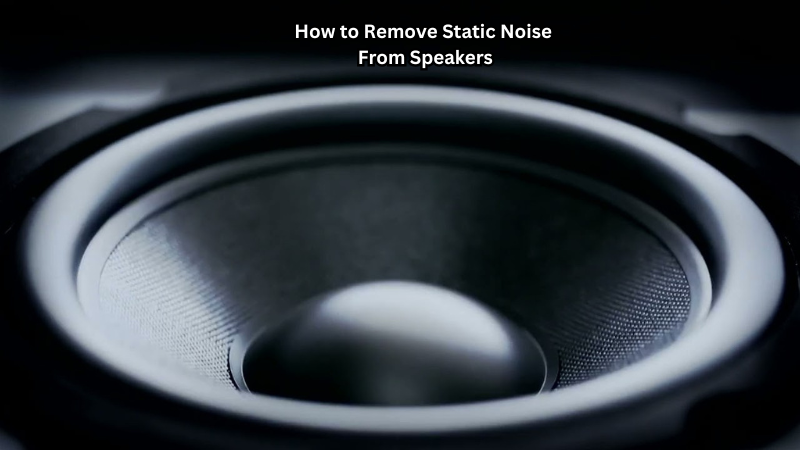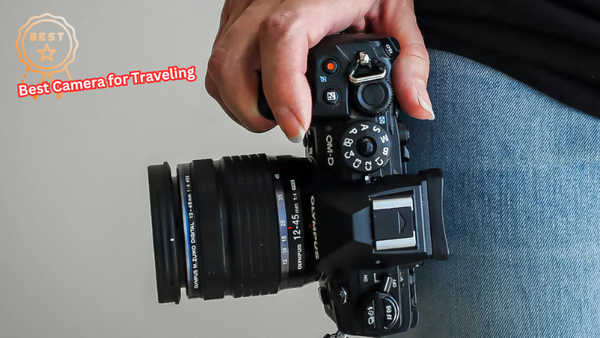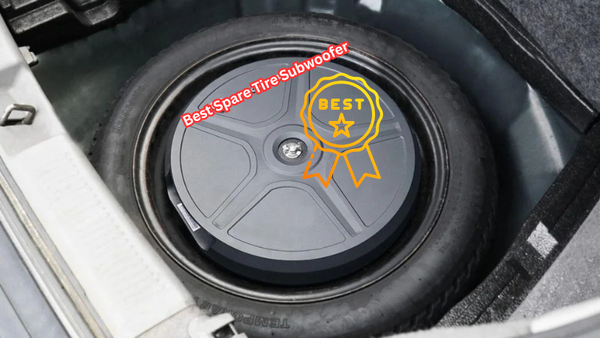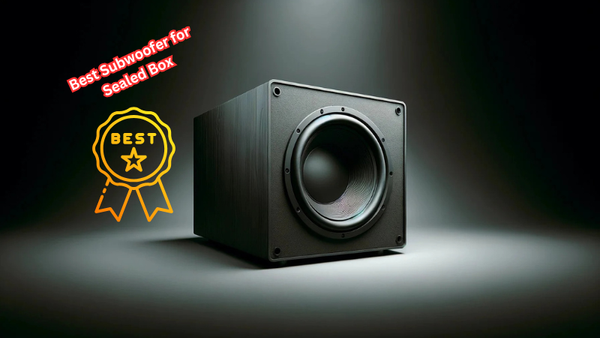Static noise from speakers can be a frustrating interruption in your audio experience.
Several factors may contribute to this issue, such as improper audio settings, faulty speaker wires, or issues with playback devices. To minimize static noise, start by checking your audio settings to ensure they are correctly configured for your specific audio equipment.
Inspect your speakers' wires for any signs of damage or loose connections, as these can cause interference. Additionally, optimizing your audio output by using high-quality cables and ensuring all equipment is compatible can significantly enhance sound clarity.
By addressing these common causes, you can effectively reduce static sound and enjoy a smoother, more enjoyable listening experience.
What is Static Noise?
Static noise in speakers is an unwanted, hissing, or buzzing sound that can occur during audio playback.
It may be constant or intermittent and often disrupts the clarity of the sound being played. This issue can be particularly frustrating when listening to music, watching a movie, or participating in an important conference call.
There are several potential causes of static noise, such as electrical interference, improper audio settings, damaged speaker wires, or incompatible equipment. Understanding these underlying factors is essential in effectively resolving the issue.
Types of Static Noise
Here are some common types of static noise that may occur in speakers:
- White Noise: This type of noise is a random, continuous hissing sound that can be caused by an electrical signal or interference. It often sounds like the sound of static on a radio.
- Buzzing/Humming Noise: This type of noise is characterized by a low-frequency buzzing or humming sound and can be caused by ground loops or electrical grounding issues.
- Crackling/Popping Noise: This type of noise is typically intermittent and sounds like small pops or crackles during audio playback. It can be caused by loose connections, damaged wires, or outdated equipment.
Continuous hum or noise can be particularly annoying and may affect the quality of your audio. By identifying the type of noise, you can better troubleshoot and resolve the issue.
What Causes Static Noise in Speakers?
There can be several reasons for static noise in speakers, and identifying the underlying cause is crucial in effectively resolving the issue. Some common causes of static noise include:
- Improper Audio Settings: One of the most common causes of static noise is incorrect audio settings. For example, if your audio levels are too high or low, it can lead to distortion and unwanted static noise.
- Faulty Speaker Wires: Damaged or loose speaker wires can also contribute to static noise. Over time, wires may become frayed or disconnected, leading to interference in the audio signal.
- Electrical Interference: Electrical devices such as microwaves, cell phones, or other electronics operating near your speakers can cause interference, resulting in static noise.
- Ground Loops: Ground loops occur when there is a difference in electrical potential between two devices, causing unwanted noise or hum. This issue can often be resolved by using ground loop isolators.
- Outdated/Incompatible Equipment: Using outdated or incompatible equipment can also result in static noise. For instance, if your audio cables are not compatible with your speakers or other devices, it may lead to poor sound quality and static noise.
Understanding these common causes of static noise can help you identify the root of the problem and take the necessary steps to resolve it effectively.
How to Remove Static Noise From Speakers
Static noises from speakers can be a frustrating and distracting problem, but there are several steps you can take to reduce or eliminate them. Here are some tips for removing static noise from your speakers:
1. Check Your Audio Settings
Before trying any other solutions, make sure your audio settings are properly configured. You may need to adjust the volume levels or equalization settings to reduce static noise. If you're using a computer, try updating your audio drivers and adjusting the sound settings in your operating system.
2. Inspect Speaker Cables
Loose, damaged, or improperly connected speaker cables can cause interference and result in static sounds. Inspect all cables to ensure they are securely connected and not damaged in any way. You may also want to consider using high-quality speaker cables for better sound quality and reduced interference.
If properly connected and undamaged cables do not resolve the issue, try moving any electrical devices away from your speakers or using shielding materials to reduce interference.
3. Move Electronic Devices Away From Speakers
Electrical devices, such as cell phones, microwaves, or other electronics operating near your speakers can cause radio frequency interference and result in static noise. Try moving these devices away from your speakers to reduce interference.
4. Use a Ground Loop Isolator
If you're experiencing humming or buzzing noises that persist even after adjusting audio settings and checking cables, you may have a ground loop issue. A ground loop isolator can help eliminate this problem by breaking the electrical connection between two devices.
5. Upgrade Your Audio Equipment
Outdated or incompatible equipment can also contribute to static sound problems. Consider upgrading your equipment, such as audio cables, speakers, or an external amplifier, to improve sound quality and reduce static noise.
Audio driver upgrades are usually free and can be done easily, so it's worth checking for updates regularly.
6. Reduce Signal Interference
Some electronic devices emit strong signals that can interfere with the audio signal from your speakers. You can reduce this interference by using shielded audio cables or keeping your speakers away from other electronic devices.
7. Try a Power Conditioner
A power conditioner is a device that helps filter out unwanted electrical signals and provides clean power to your audio equipment. This can help reduce static noise caused by electrical interference and improve overall sound quality.
8. Consult a Professional
If none of these solutions work for you, it may be best to consult a professional for further assistance. They can help diagnose the issue and provide recommendations for resolving it effectively.
These are just some possible solutions for removing static noise from speakers. Ultimately, the best course of action will depend on your specific setup and equipment. However, by understanding the common causes of static noise and taking appropriate measures, you can significantly reduce or eliminate this annoying issue and enjoy clear and crisp sound from your speakers.
Preventative Tips to Keep Speakers Static-Free
While there are ways to remove static noise from speakers, it's always better to prevent it from happening in the first place. Here are some preventative tips to keep your speakers static-free:
- Invest in Quality Equipment: High-quality speakers and audio cables may cost more initially, but they can provide better sound quality and reduce the chances of static noise.
- Properly Ground Audio Equipment: Ensure all your audio equipment is properly grounded to avoid ground loop issues that can lead to static noise.
- Regularly Check Cables and Connections: Regularly inspect and clean speaker cables and connections for any damage or loose connections that may cause interference.
- Keep Electronics Away From Speakers: As mentioned before, keep electronic devices away from your speakers to reduce interference and static noise.
- Update Audio Drivers: Make sure to regularly check for audio driver updates and install them as needed to keep your audio equipment functioning properly.
By following these preventative tips, you can minimize the chances of encountering static noise issues in the future and enjoy uninterrupted sound from your speakers.
Preventative Tips to Keep Speakers Static-Free
While there are ways to remove static noise from speakers, it's always better to prevent it from happening in the first place. Here are some preventative tips to keep your speakers static-free:
- Invest in Quality Equipment: High-quality speakers and audio cables may cost more initially, but they can provide better sound quality and reduce the chances of static noise.
- Properly Ground Audio Equipment: Ensure all your audio equipment is properly grounded to avoid ground loop issues that can lead to static noise.
- Regularly Check Cables and Connections: Regularly inspect and clean speaker cables and connections for any damage or loose connections that may cause interference.
- Keep Electronics Away From Speakers: As mentioned before, keep electronic devices away from your speakers to reduce interference and static noise.
- Update Audio Drivers: Make sure to regularly check for audio driver updates and install them as needed to keep your audio equipment functioning properly.
By following these preventative tips, you can minimize the chances of encountering static noise issues in the future and enjoy uninterrupted sound from your speakers.
FAQs
Can static noise damage my speakers?
In most cases, static noise does not cause any physical damage to speakers. However, it can be a sign of underlying issues that may harm your speakers if left unresolved.
Will upgrading my audio equipment eliminate static noise?
It's possible that upgrading your audio equipment, such as using high-quality cables or speakers, can reduce or eliminate static noise. However, it's essential to identify and address the root cause of the issue before investing in new equipment.
Why do speakers start to crackle?
Crackling sounds in speakers can be caused by a variety of issues, such as loose connections, damaged cables, or interference from other devices. It's best to troubleshoot and address the specific cause to resolve the issue.
Can using a power conditioner reduce static noise?
Yes, using a power conditioner can help filter out unwanted electrical signals and provide clean power to your audio equipment, reducing static noise caused by interference.
Conclusion
In conclusion, addressing static noise from speakers involves a few straightforward steps that can significantly enhance your audio experience.
By thoroughly checking audio settings, you ensure compatibility and optimal performance for your equipment. Inspecting speaker wires for any damage or loose connections is crucial, as these are common sources of interference. Furthermore, optimizing audio output with high-quality cables and compatible devices can greatly improve sound clarity.
Regular maintenance and proactive troubleshooting are essential in preventing static noise issues from arising. By applying these tips, you can enjoy clearer, more enjoyable sound from your audio equipment, confident in your ability to tackle and resolve static noise challenges effectively.





